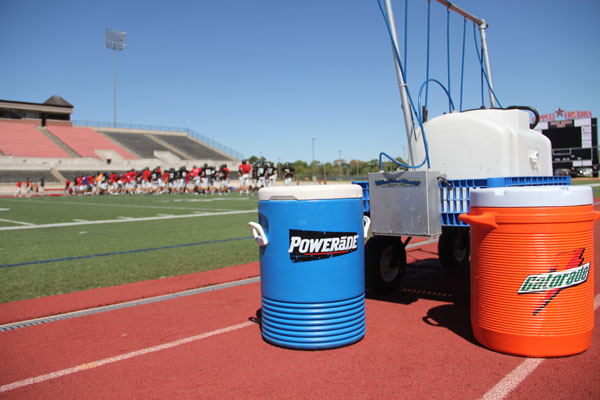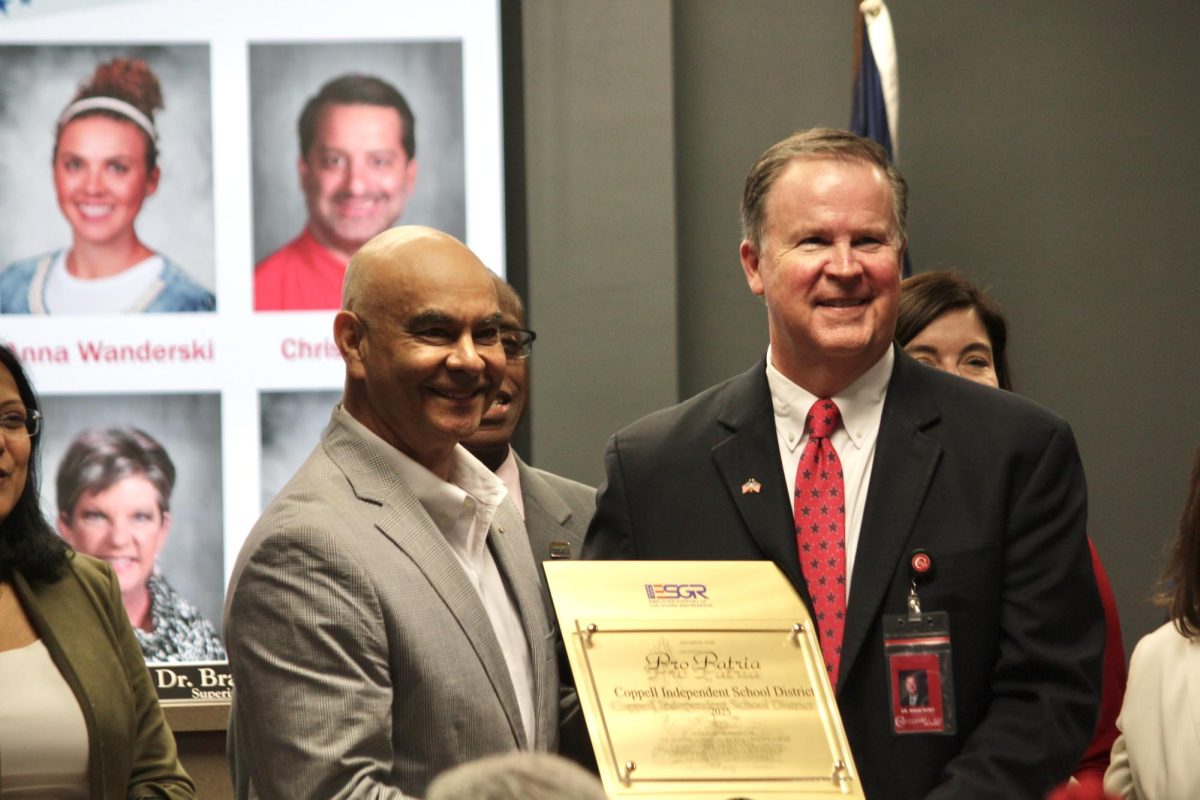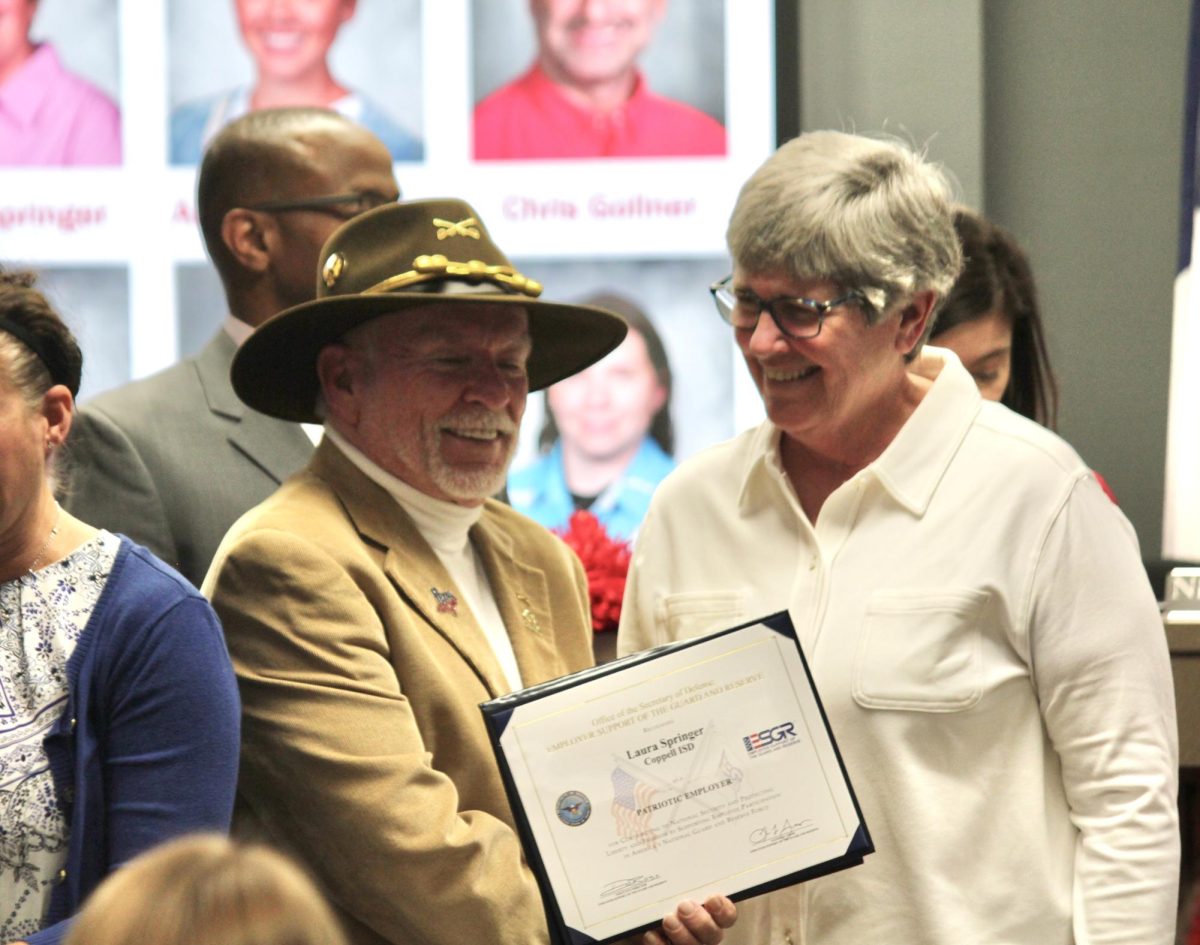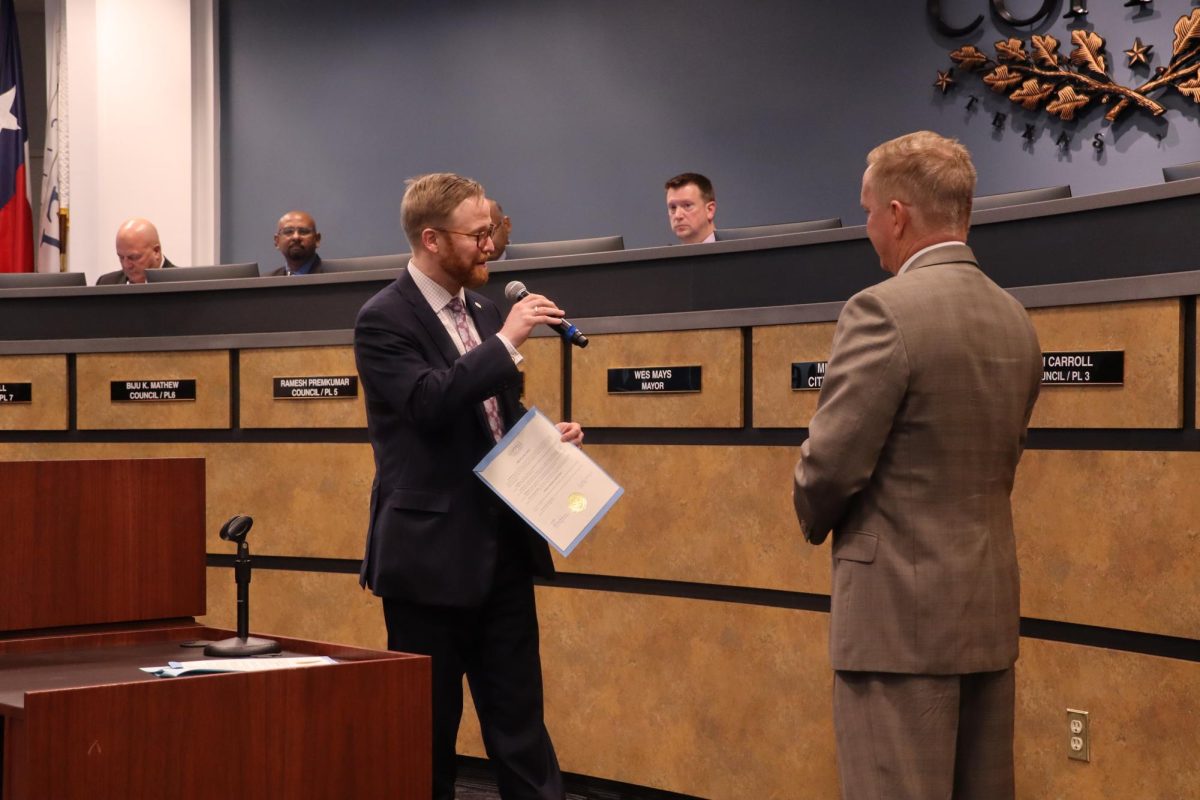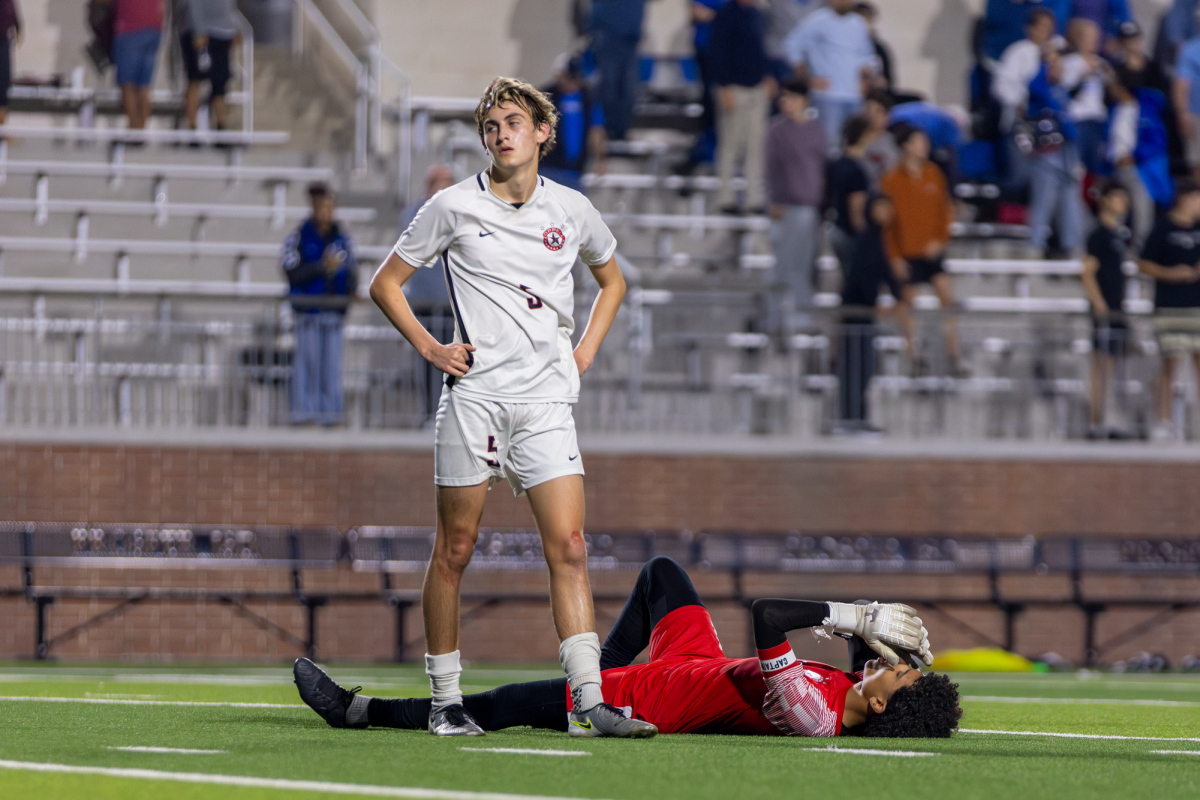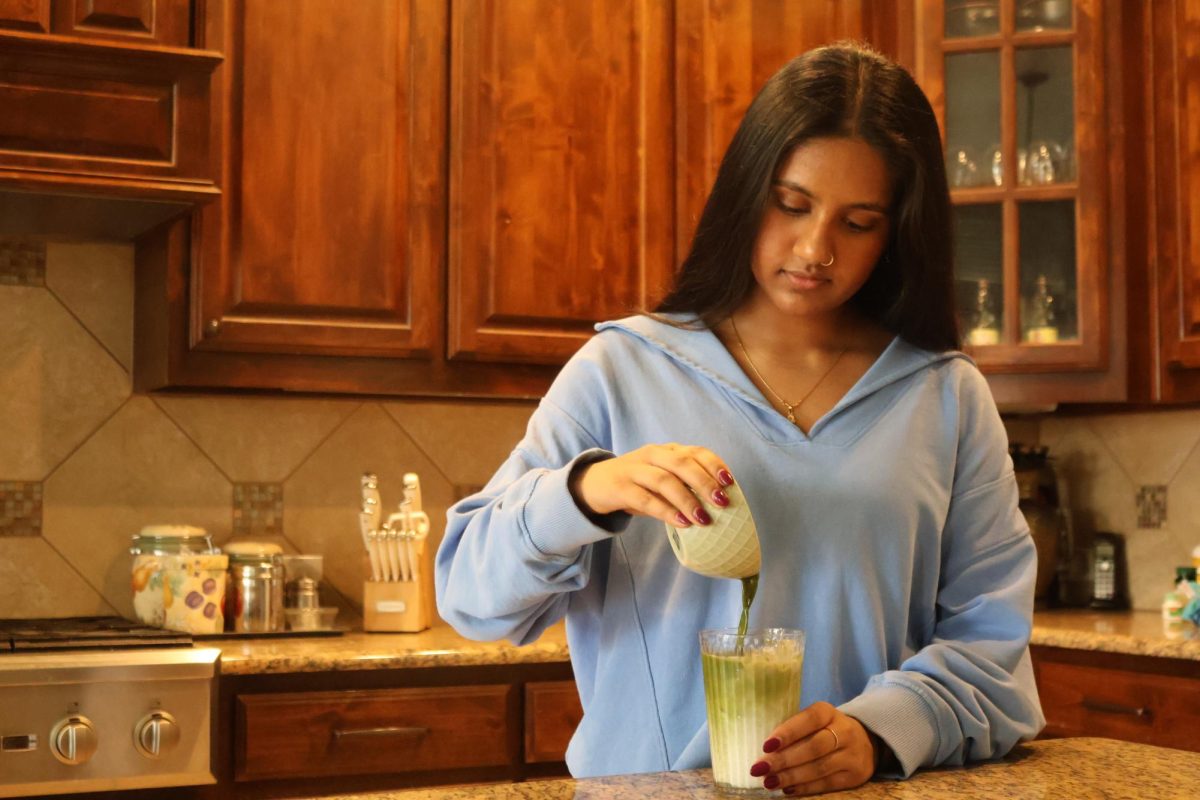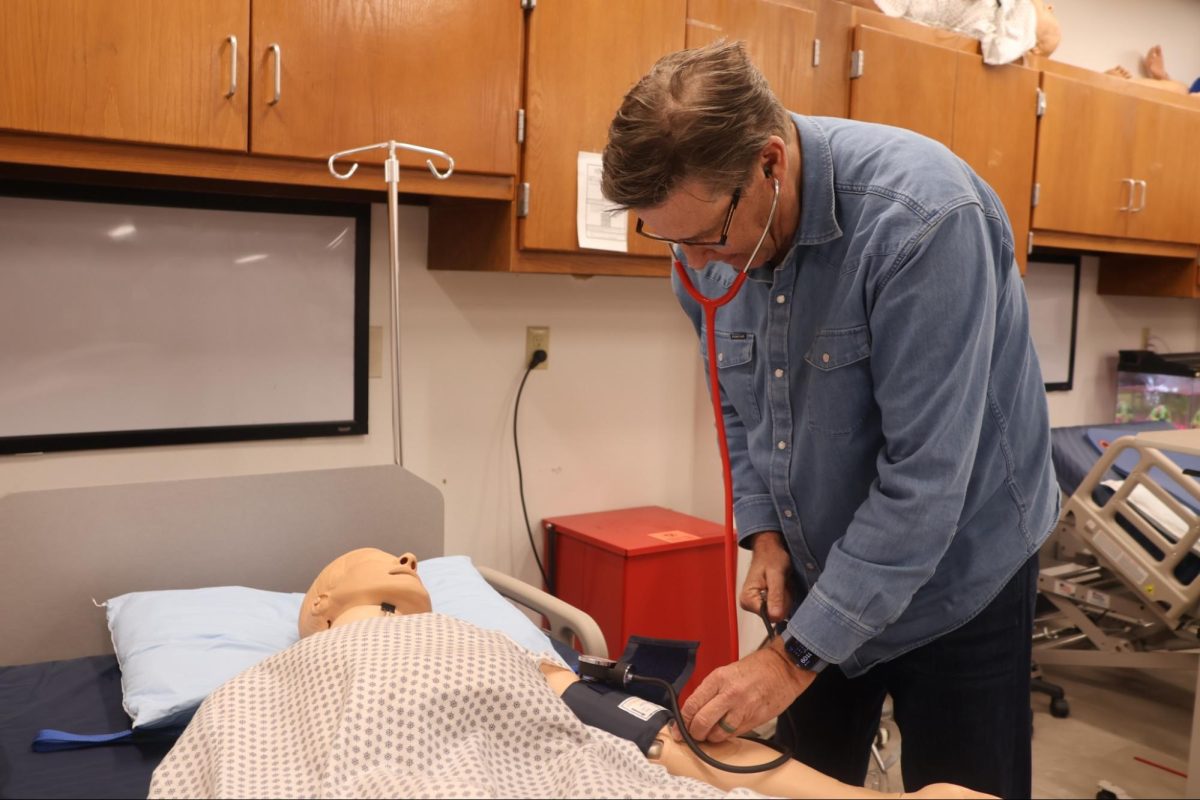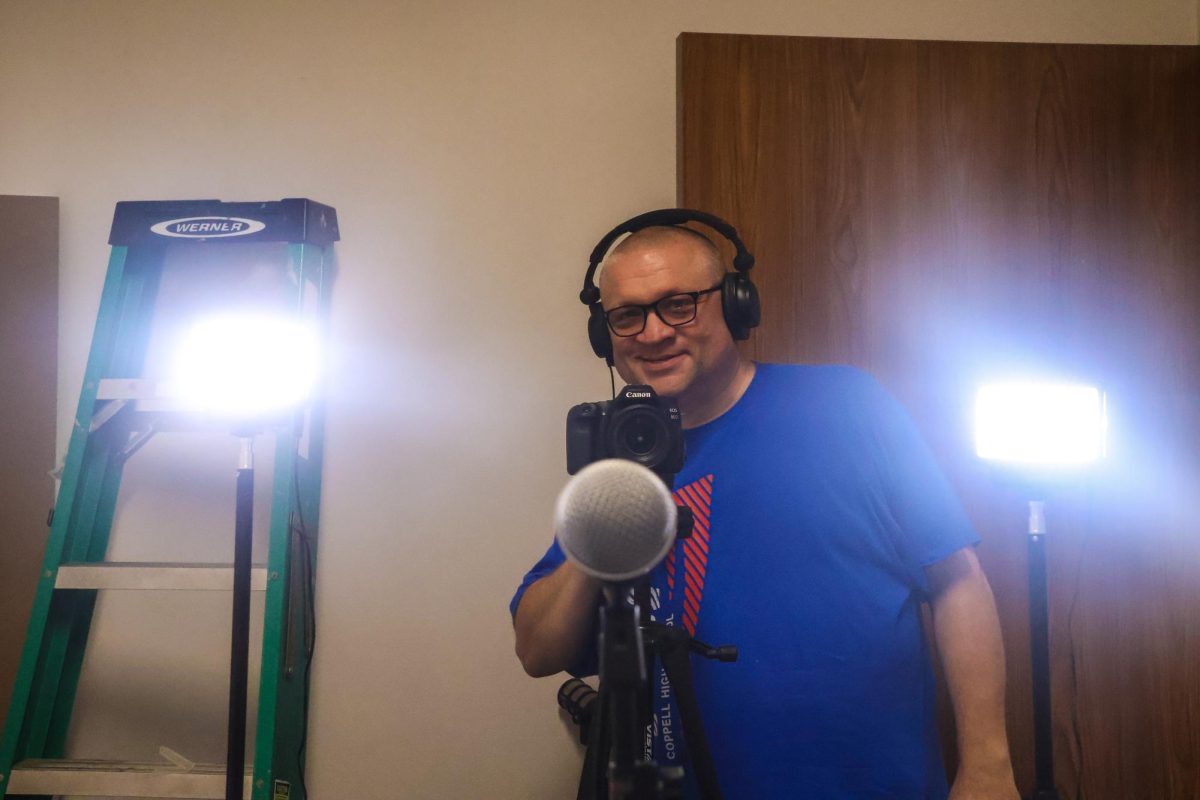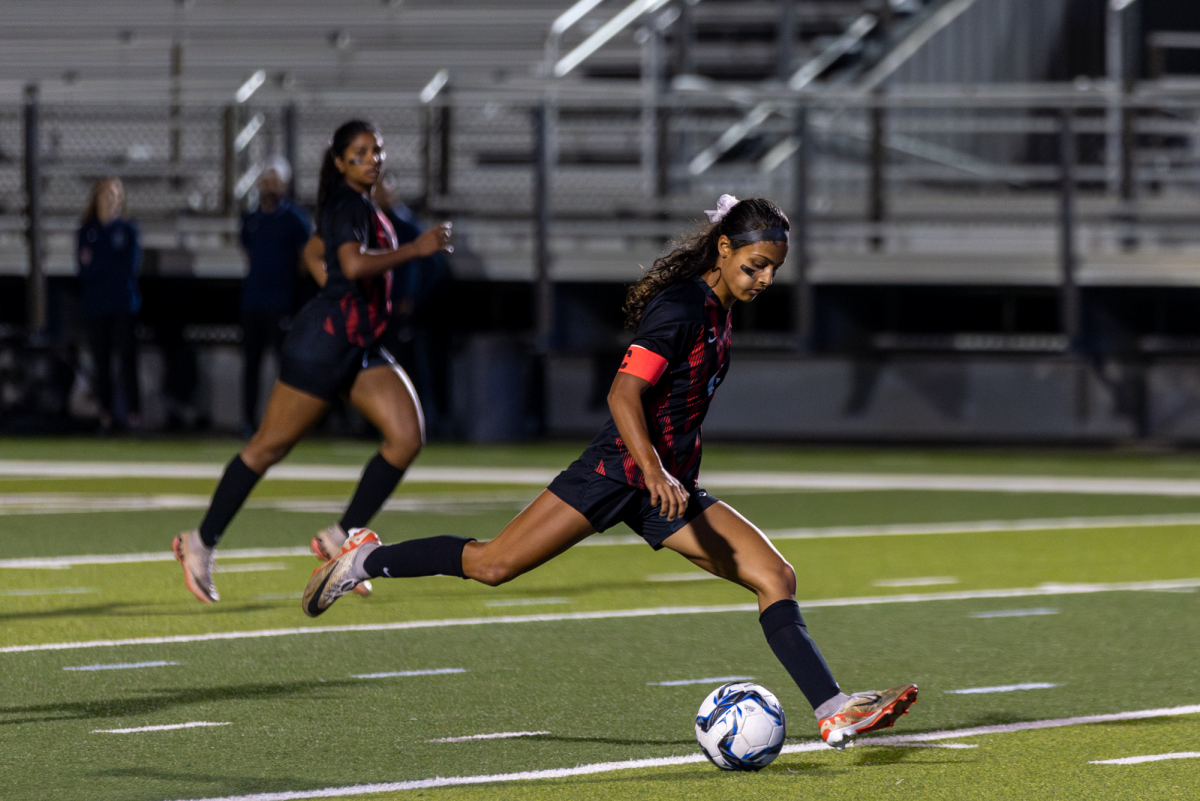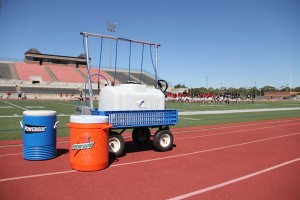
By Jordan Bickham
Staff Writer
The summer season ends with the start of school, but with temperatures soaring in the hundreds, summer seems endless, even when the vacation is over.
As a freshman spending his last few weeks of summer marching under the sun, Matthew Thomas could not have anticipated how intense outdoor activities can be in Texas.
“We practice four days a week, about three hours a day, and it is almost always outside,” Thomas said. “I try to drink water outside of band. You know, drink a cup of water instead of a can of coke, keeping your body cool and hydrated all the time.”
But sometimes, water is just not enough.
“During band camp, we had just come in from practicing outside for about two and a half hours,” Thomas said. “One minute I was standing behind my drum, the next thing I know, I am being shaken awake by my percussion director.”
Senior percussionist, Leeza Nguyen, has been in marching band for four years now. Her experience has allowed her to learn how to beat the torturous heat of the summer and survive long, enduring outdoor practices.
“Two years ago, during a Monday rehearsal with just percussion, we had four people in just the pit section sitting out,” Nyguen said. The ensemble doesn’t even sound good with that many not playing.”
The Dallas-Fort Worth area has been scorched in over 100 degree temperatures for 66 days with a record high of 111. With temperatures that high, everyone needs to know how to keep it cool in the heat.
“Definitely wear light clothing, that’s why the band is always wearing white, to reflect the sun,” Nyguen said. Remember sunscreen or to cover your skin, hats always help.”
Although the temperatures this summer are extreme, summers before have been hot and have not stopped anyone from doing what they love. As Nyguen said “The heat is just another obstacle, but it won’t stop anyone from continuing with their activities, what they enjoy doing,”
But this is not the hottest summer Coppell has ever faced. CHS band director Scott Mason, has been working at CHS for 21 years now, and has dealt with many extreme summers.
“There have been three or four summers like this,” Mason said. “2000 was extremely hot, but it cooled down when school came around.”
Though it is not the hottest, they have still had to make changes due to the heat. “We have had to shorten practices from 4:20 to 6:20 to 4:20 to 6:00. They also can always get water, but that is standard policy,” Mason said.
Mason recommends drinking water all day. “The water you had before the rehearsal, two to three hours before, is the one getting through your body and it is cooling off your body and giving your body what it needs.”
The heat hasn’t stopped athletics from working outside either. Football practices almost every day after school, but coaches, like Kody Groves, have had to make changes to deal with the heat.
“We haven’t canceled, but we have tried to move practices to earlier in the morning. And we’ll change things, like instead of wearing football pants we’ll have them wear shorts,” Groves said. “Eat foods with salt; you lose a lot of salt from sweating, and keep drinking, even when you’re not thirsty, you always need to replenish.”
“We constantly give them water breaks every ten to fifteen minutes. It is just trying to take precautions, it is not like it has never been 103 before,” Groves said. “We are not easy on them though, they still have to work hard.”
The summer heat has been relentless up until the past few days; fortunately, the area has been treated with a few days of 80-degree temperatures. But even with the heat steadily climbing back up to 100 this week, students will still be in the heat, doing what they love.
“I try to tell them, there is always something, some obstacle in the way of reaching their goal, whether it is the heat or it is tiredness, you have to rise above that,” Mason said. “You have to put it out of your mind, get some water, and get back to work.”



